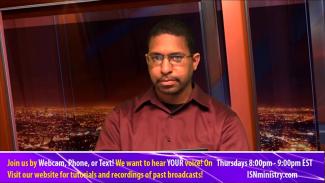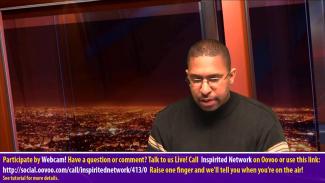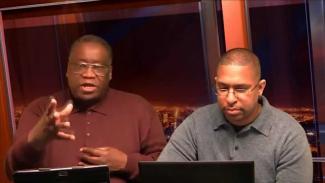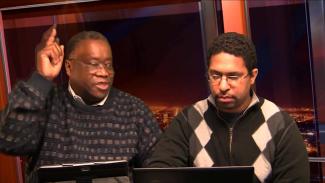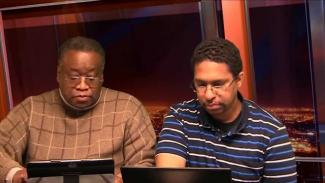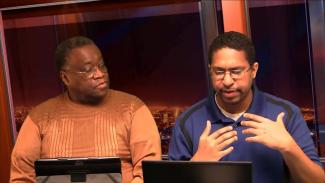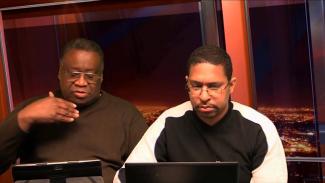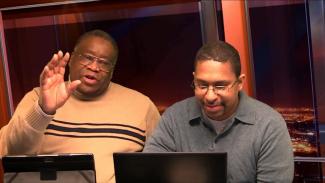What was the mission of Jesus? How is that mission expressed in His parables? What do we learn in the parables about how God views the lost? How do these stories demonstrate the character and love of God? This week as we study the book of Luke, we explore some of the parables as we look at Luke's understanding of Jesus' mission. We will look at the parable of the lost sheep, lost coin, prodigal son, rich man and Lazarus, and the servants entrusted with talents.
Inspirited Live
Choose from all Inspirited Live programming or select a topic from the menu.What was the role of the Holy Spirit in Jesus' ministry on earth? How did the Holy Spirit work with individuals to reveal what Jesus came to do on earth? What role did prayer play in the life of Jesus? How and by what method did Jesus teach his disciples to pray? Jesus lived His life in daily connection with God. Through communion with the Holy Spirit and consistent prayer, we can too. This week we explore the book of Luke focusing on these aspects.
What is the Sabbath? Which day did God set apart as Holy in the weekly cycle established in Creation? What does Jesus being Lord of the Sabbath have to do with us today? What is the purpose of the Sabbath? Did Jesus' healing on the Sabbath show contempt and disregard for the Sabbath? Why was Jesus often accused of breaking the Sabbath? Did He really break it? What does this mean for Christians today? This week we study Luke's account of Jesus' relationship with the Sabbath.
What is the difference between an apostle and a disciple? What is the job of an apostle? Do apostles and disciples still exist today? What kinds of people did Jesus choose to be apostles and disciples? What does it take to become one of them? Did Jesus choose religious leaders or common people? Were the people Jesus chose always qualified by human standards? This week we explore discipleship from Luke's perspective and what implications discipleship has on Christians today.
Who is Jesus? How each of us answers this important question makes a big difference. Some view Jesus as a great teacher, prophet, or religious figure. But who is Jesus and what difference does He make in our lives? As we explore the gospel of look we find not only what the people of His time thought about Him, but also what the Father testified of Him. What are the different names for Jesus? What is meant by the terms "Son of Man" and "Son of God". How can we understand these terms in relation to the role, mission, and person of Jesus.
What was the significance of the Baptism of Jesus? Did Jesus need to be baptized? Is it necessary for people to be baptized? Did Jesus really experience humanity? How did Satan tempt Jesus in the wilderness? Was Jesus only tempted 3 times? How did He meet these temptations? What message does this hold for us today? As we explore these questions we discuss the implications for Christian believers today.
This quarter we begin our study on the book of Luke. What does this book have to say about the first advent of Jesus Christ? How does Luke approach this subject? What can we learn from the two miracle births of John the Baptist and Jesus? As the angel came to bring the news, how were the reactions of both sets of parents different? Who exactly was Luke and what makes him a credible source of information? Did Luke witness everything? If not, how do we know his account can be trusted? Why was the book of Luke written? This week we tackle many of these subjects.
What does Proverbs say about humility and pride? What wisdom is there in being humble? This particular set of proverbs was contributed by Agur, who scholars know very limited information about. What wisdom does Agur have for family relationships? How should children relate to their parents when they get old? In what ways do the words used in these Proverbs connect with God's discussion with Job? What statements are made about God as Creator?
What does the book of Proverbs say about living by faith? How does Solomon further elaborate on his themes of oppression and treatment of the poor? While riches are not a sin, what does the Bible say about how people should become rich? This week we explore Proverbs 28 - 29. Solomon discusses themes of true leadership and corruption, warning of the perils of ruling by unjust means. Why does Solomon suggest its better to have little and maintain integrity compared to having much but resorting to unrighteousness to get there?
This week, in our exploration of Proverbs, we focus on Proverbs 26-28. Solomon has a lot to say about what lies beneath the surface. Often, people where a mask. We don't always see who a person truly is until they have a chance to show their true colors. Likewise, many only superficially understand things while not looking and digging deeper to obtain true wisdom. The fool wears the mask of wisdom, the lazy wear the mask of fear, and enemies wear the mask of friends. How can Solomon's wisdom help us to avoid being hurt by why lies beneath the masks we encounter?
What is truth and how does God expect us to relate to truth? Are only Biblical writers given wisdom from God? Does God give wisdom to secular rulers or people? How should the wise relate to the poor? Does God expect the poor to receive partial treatment? Is it ok to be partial toward the rich? How should we relate to truth and what does God expect us to do once we have access to truth? This week's study focuses on Proverbs 23-24.
What words of Wisdom does Proverbs contain for every day life? What implications are there for how we should treat others? While the Bible teaches that we should give to those in need, what does it say about those who don't have because they refuse to work? What practical advise does Proverbs have for parents and how they discipline their children? This week we focus on Proverbs 20 to 22.

